The sitcom Seinfeld was a massive hit. It’s more than two decades since it first hit the airwaves, and the show’s still as beloved as ever. But not everyone knows how intriguing and sometimes dramatic the cast’s behind-the-scenes antics were.


Over the years, though, Jerry Seinfeld and the others have let some secrets slip.
One Episode Was Too Much
In 2014 Jerry Seinfeld did an “Ask me Anything” interview on reddit. Needless to say, lots of people asked questions about his self-titled show. One of them wanted to know, “Were there ever story ideas that you had to scrap for Seinfeld because you felt they pushed the limits too far?” And there had indeed been such instances
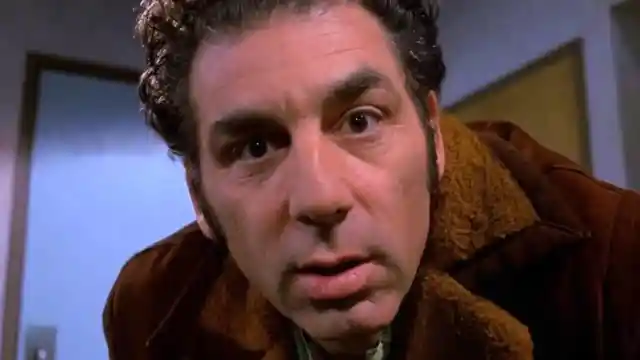
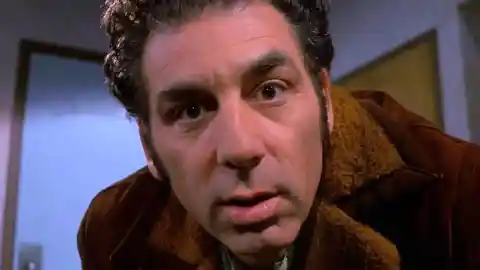
“Yes. There was one episode where Jerry bought a handgun,” Seinfeld replied to the fan. “And we started making it and stopped in the middle and said, ‘This doesn’t work.’ We did the read-through and then cancelled it. A lot of other stuff happened, but trying to make that funny ended up being no fun.”
Seinfeld Didn’t Care Who Was Funny
During the reddit Ask Me Anything session, a fan asked Seinfeld where the idea of his character being a comedian but also the straight man to the other characters came from. As well as complimenting the fan for his “good comedic eye” Seinfeld explained, “The reason I would play straight was it was funnier for the scene.”
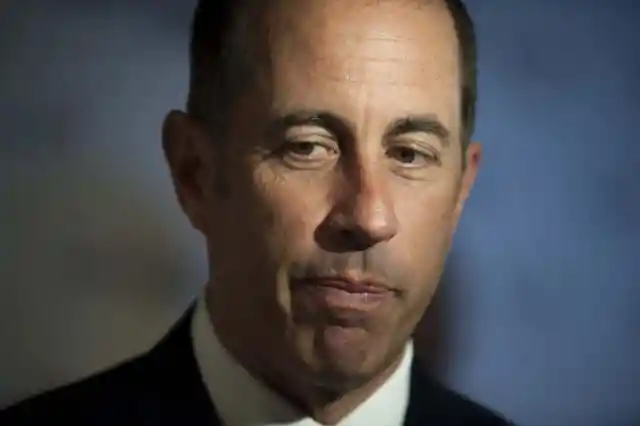

“And very few people have ever remarked on this, because it was a conscious choice of mine, only because I knew it would make the show better,” Seinfeld added. “And I didn’t care who was funny as long as somebody was funny and that the show was funny. So you have hit upon one of the great secret weapons of the Seinfeld series, was that I had no issue with that.”
A Simple Rule
When Seinfeld and David began creating the show, they didn’t want it to be like the more wholesome sitcoms of the 1980s era. They assigned Seinfeld a simple rule: “No hugging, no learning.” The characters wouldn’t evolve – no matter what, they would always remain the same small-minded and unpleasant people they began as.
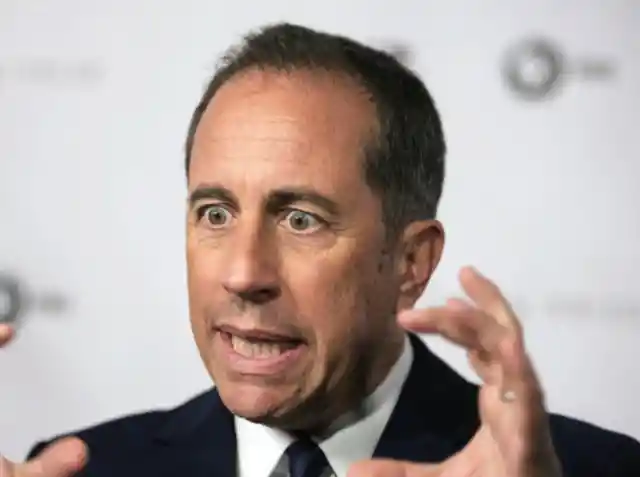
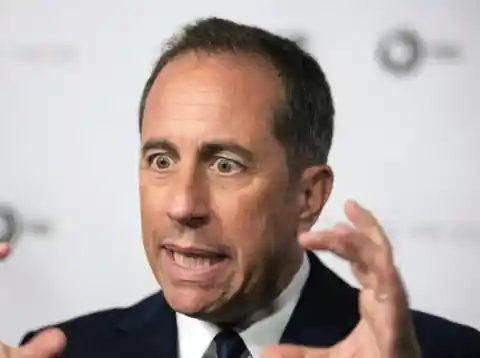
That being said, the no-hugging rule was broken a couple of times. The no-learning rule wasn’t, though. Indeed, by the final episode, it was painfully obvious that nothing would fix the self-serving nature of the four main characters, and they all end up in jail. Seinfeld’s pessimism was so intense, in fact, that it arguably changed American TV forever.
It Was Very Hard to Write for Seinfeld
Seinfeld shared something about writing for the show in his reddit AMA. “As you can probably imagine, over the nine years of doing the show, Larry David and I sat through hundreds of ideas that people wanted to do on the show. And most of the ideas are not good,” he said. “I saw Larry say the other day on some show, somebody asked him the same question. And he said, ‘I know you think it’s funny, but it’s really hard.’”


“The ideas that Larry and I would respond to, I don’t even know, they just need to be very unique,” Seinfeld continued. “It’s just a lot harder than it seems to come up with. And particularly for that show, where we tried to do things that were unusual, and you had to go through a lot of ideas to find the ones you like.”
Elaine Almost Wasn’t in the Show
If you watch the pilot episode of Seinfeld, you’ll note that one very important character isn’t in there: Elaine. Julia Louis Dreyfus didn’t appear until the show was picked up, in fact. Before that, Lee Garlington’s character Claire, a waitress, was intended to be the female lead. But Garlington wasn’t retained for the series proper.


In 2013 Garlington talked to HuffPost about what happened afterwards. “It didn’t bother me the first five years. But the second five years drove me nuts,” she explained. “I don’t know why. I still see Jason [Alexander] regularly. He’s best friends with a friend of mine, and I’ve never talked about it with him. But I’m sure for him, he’s like, ‘Oh, poor Lee! Poor Lee!’”
The Soup Nazi Was a Real Person
The angry chef who gave the world the catchphrase “No soup for you!” wasn’t a comedy creation that came out of nowhere. The real Soup Nazi wasn’t Yev Kassem, though, but Ali Yeganeh, who owned the restaurant chains Soup Kitchen International and The Original Soupman. Moreover, reportedly he loathed Seinfeld’s take on him.
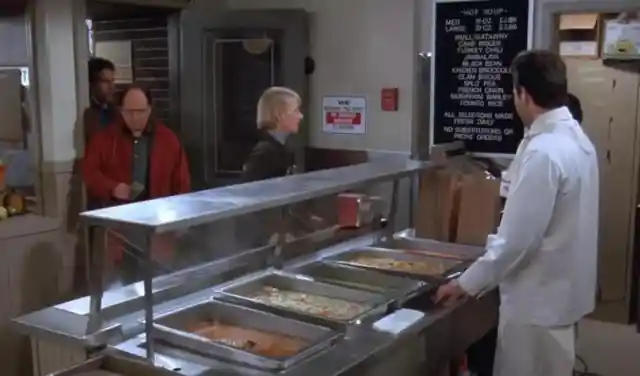
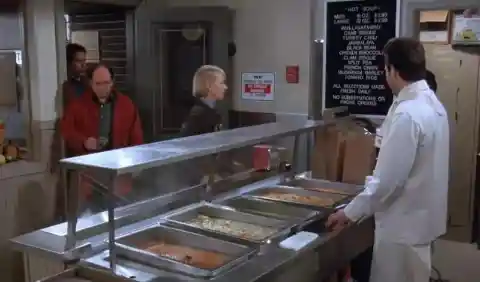
In fact, Seinfeld writer Spike Feresten has stated that he visited Soup Kitchen International with Jerry Seinfeld and some of the crew after the show aired. There, they were treated to a furious rant from Yeganah, even though the Soup Nazi episode had increased business at the restaurant. The real-life scene apparently ended with Yeganah really screaming, “No soup for you!”
Larry David Doesn’t Know Seinfeld Met Him Before
During the 2014 reddit AMA, a fan asked Seinfeld, “Please tell us about the first time you met Larry David and what was your initial impression of him?” The actor answered, “The first time I met him, that’s a long story… I actually was eavesdropping on him talking to another comedian, and I wasn’t even in comedy yet.”
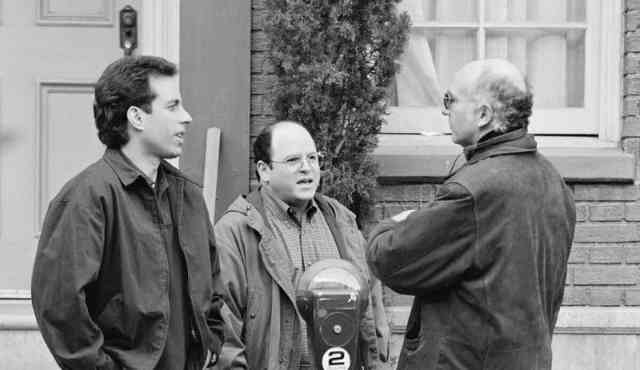
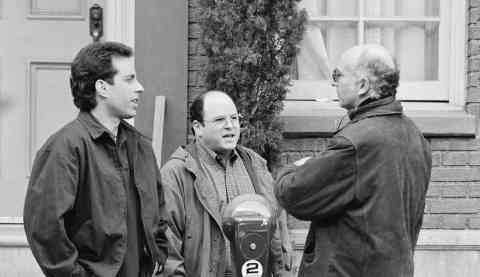
“That was the first time I ever saw him, but we didn’t talk,” Seinfeld continued. “But him and this other comedian were leaning on the fender of my car, and I knew that they were real comedians and I was still just flirting with it.” Moreover, in the post below that one Seinfeld added, “You know what’s funny? He doesn’t even know that story.”
Jason Alexander Almost Quit
However, Jason Alexander, aka George Constanza, grew so frustrated with the show in season two that he threatened to leave. In March 2017 the actor explained to Access Hollywood that it was all because Larry David penned an episode that George didn’t feature in, and he wasn’t pleased.


“I came back the next week and I said to Larry, ‘Look, I get it. But if you do that again, do it permanently. If you don’t need me to be here every week… I’d just as soon go back home and do what I was doing,’” Alexander explained. Fortunately for everyone, David “freaked out” at the prospect and Alexander didn’t leave.
The Rye Episode Is Based on Reality
One episode of Seinfeld involves George’s parents stealing a loaf that they’d initially given as a gift. It may sound silly, but that actually happened as well. In 2016 show writer Carol Leifer explained that a pal told her the rye story, and she liked it so much she decided to put it in an episode.


“I have a friend from high school who said she had a great Seinfeld idea,” Leifer told the website news.com.au. “She said, ‘We had a dinner party the other night and these people brought a bread to serve at the dinner. And I forgot to put the bread out and I noticed at the end of the night they took the bread home.’” Now, that incident has been immortalized.
“The Outing” Was Controversial
The season four episode “The Outing” was all about a journalist believing that George and Jerry were a couple. Subsequently, the pair of them frantically deny it. The episode came very close to never airing at all, though. After the initial read-through, a studio boss requested that the whole thing be cut.
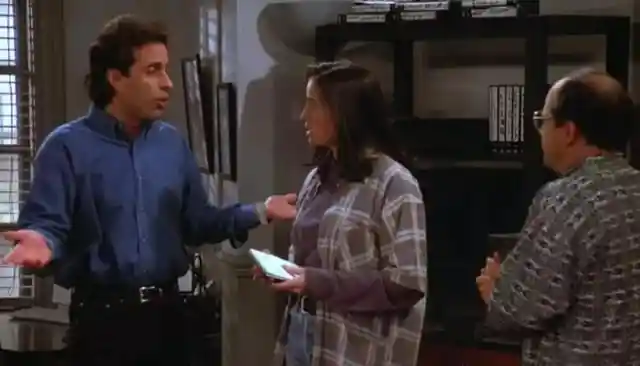
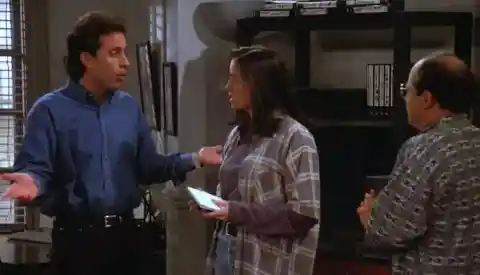
Moreover, Larry David and Jerry Seinfeld were themselves concerned about the episode being deemed homophobic. So they made sure that the characters said “not that there’s anything wrong with that” when asked about being gay. That became the episode’s repeated refrain – and in the end, “The Outing” even picked a GLAAD gong.
Lawrence Tierney
Lawrence Tierney popped up on Seinfeld as Elaine’s father Alton. However, during his time in the show he reportedly terrorized everybody on set. At that time in his life, he was reportedly an alcoholic who was often in trouble with the law. Indeed, he was even spoken to by the police in connection with a death back during the mid-1970s. Apparently, Tierney was caught robbing a butcher’s knife during filming.


On the extras disc of the Season 2 Seinfeld DVD, the actors remember Tierney less than fondly. According to them, after being caught with the knife, Tierney made a motion as if to threaten Seinfeld with it, seemingly trying to treat it all as a joke. Alexander said to the camera, “Lawrence Tierney I think scared the living c**p out of all of us.”
One Episode Required an Apology
The episode called “The Puerto Rican Day,” broadcast just before the series ended, sparked a lot of controversy. In the show, the main characters get stuck in traffic during the Puerto Rican Day parade. Kramer inadvertently sets a Puerto Rican flag on fire, which leads to an angry mob forming. He then declares, “It’s like this every day in Puerto Rico.”


The president of the National Puerto Rican Coalition, Manuel Mirabal, subsequently told the Associated Press that the episode was an “unconscionable insult” and it was “unacceptable that the Puerto Rican flag be used by Seinfeld as a stage prop under any circumstances.” NBC apologized, but added, “We do not feel that the show lends itself to damaging ethnic stereotypes.”
Seinfeld Made Julia Louis-Dreyfus Cry at One Point
Julia Louis-Dreyfus became pregnant while shooting the third series of Seinfield, but since her character wasn’t some ideas were floated about how to hide it. Louis-Dreyfus ended up being given loose clothing or placed behind strategically located props. However, Seinfeld had initially suggested that maybe Elaine should just become overweight, which very much upset Louis-Dreyfus.


In 2015 Louis-Dreyfus joined Seinfeld on his show Comedians in Cars Getting Coffee and they talked about the incident. Louis-Dreyfus spoke about how she’d “burst into tears” at the suggestion, but in hindsight she wished they’d tried the storyline out. She told Seinfeld, “It was a great idea, and we should’ve done it.”
The Seinfeld Cast Didn’t Get Along With the Roseanne Cast
Both Seinfeld and Roseanne were shot at CBS’ studios. And this caused a ridiculous dispute that instantly span out of control. One day Louis-Dreyfus accidentally left her car in Tom Arnold’s reserved space, and came back to find a note reading, “How stupid are you? Move your f****** car, you a*****e!”
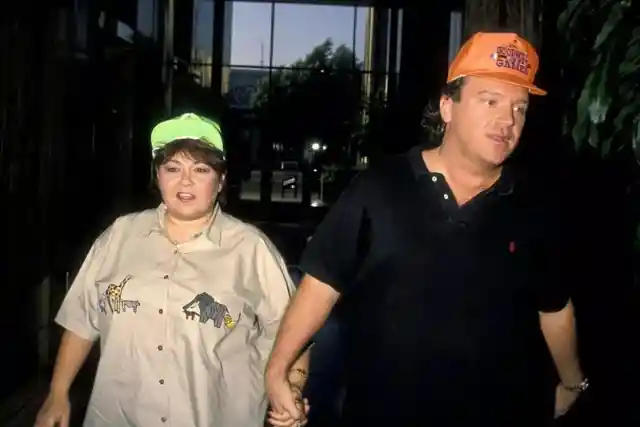
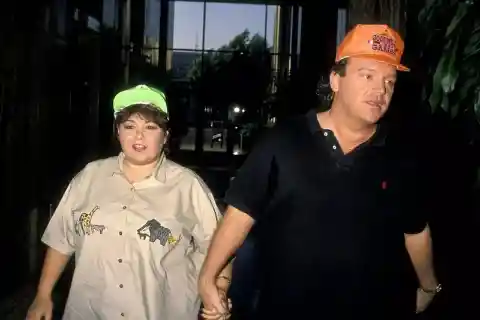
Louis-Dreyfus, David and Alexander subsequently demanded an apology from Arnold. Instead, Louis-Dreyfus received another message on her car: a photograph of a bare rear end with an obscene word daubed on it. Later on, Roseanne Barr went on the Letterman show and described Louis-Dreyfus with yet another rude word. All over a parking space?
The Cast Struggled With the Laugh Track
When Jerry Seinfeld did his reddit AMA, a fan asked him how he felt about laugh tracks on sitcoms. He answered, “This was something we struggled with quite often on Seinfeld. Because we had real laughs on the scenes that were shot in front of an audience, but then we would shoot other scenes that were not in front of the audience.”
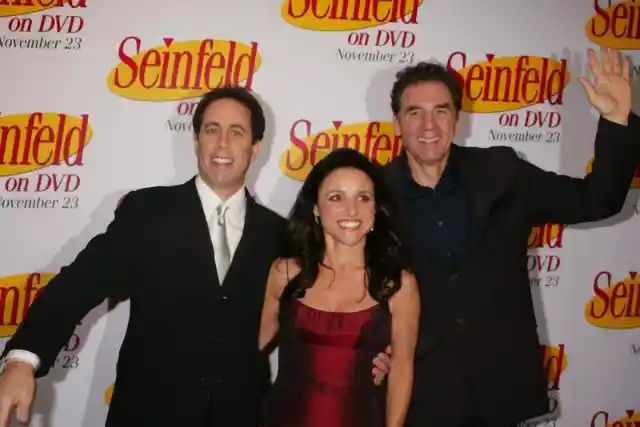
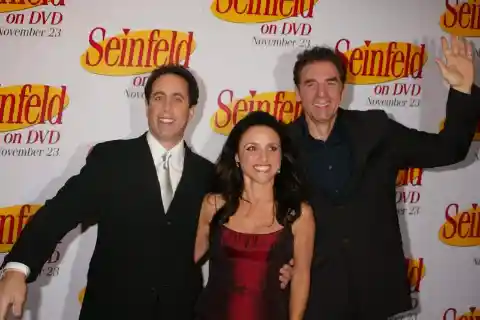
Seinfeld added that the show tried to incorporate a “subtle laugh track” to make up for the mismatch between the scenes filmed before a studio crowd and those that weren’t. He concluded, “I think that one of the fun things of a sitcom is feeling like you’re in an audience even though you’re home, watching it by yourself.”
Seinfeld Bought All the Cast Gifts
In 2016 actor Patrick Warburton talked to news.com.au about his dealings with Jerry Seinfeld. He said, “I actually tried to avoid him when we did Seinfeld. The reason being I just didn’t want to stick my foot in mouth or say something stupid. I wanted to hit my marks, I wanted to get the laughs and I wanted him to say, ‘I like that Puddy character, let’s bring him back.’”


As it turned out, though, Warburton needn’t have worried. When the interviewer asked him, “You appeared in the Seinfeld finale. Did you receive a parting gift from Jerry?” Warburton revealed, “We all got a lovely Cartier watch that said Seinfeld underneath.” And he still missed him, he said, despite not having encountered him again for a long time.
Susan Was Killed off Because Jason Alexander Didn't Work Well With Her
George’s romantic partner Susan, played by Heidi Swedberg, ended up dying in a silly way. And in 2015 Jason Alexander told Howard Stern why. “I couldn’t figure out how to play off of her,” Alexander explained. “Her instincts for doing a scene, where the comedy was, and mine were always misfiring.” As a result, Louis-Dreyfus made an offhand remark about killing Susan off.
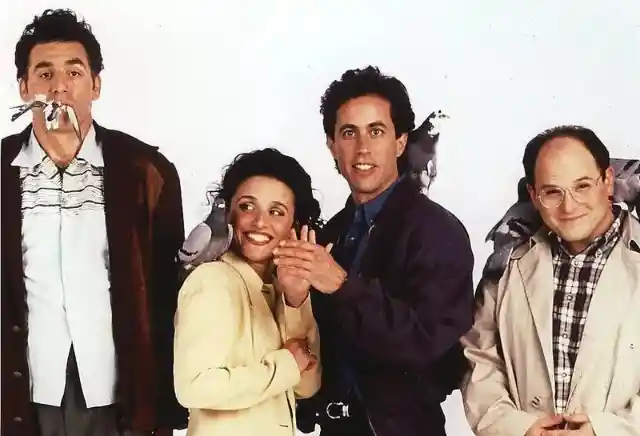
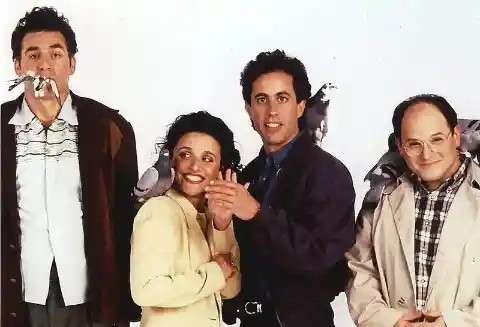
Following the Stern show, though, Alexander tweeted, “[Swedberg] was generous and gracious, and I am so mad at myself for retelling this story in any way that would diminish her. If I had had more maturity or more security in my own work, I surely would have taken her query and possibly tried to adjust the scenes with her. She surely offered. But, I didn’t have that maturity or security.”
Seinfeld Turned Down a Lot of Money
The show Seinfeld brought in the big bucks for NBC, and the studio was very keen that the series continue for as long as possible. By the end of the run during series nine, in fact, Jerry Seinfeld was being paid $1 million for each episode, which is nothing to sniff at. And he could have gotten even more if the show had carried on – but he just didn’t want it to.


In 1998 Seinfeld told Vanity Fair magazine that his reasoning was all to do with numbers. “When I was thinking about quitting the show, I thought, nine,” he explained. “People said, ‘Ten – why not ten?’ But ten is lame. Nine is my number. And then I found out that nine in numerology means completion.”
The Man Who Gave George His Name Sued
Although he’s based on Larry David, George Costanza is named after a real individual: Mike Costanza, a one-time pal Jerry Seinfeld. Alas, the real-life Constanza seemingly took this as an insult. He filed a $100 million lawsuit against the producers, claiming among other things that the show had caused him untold reputational damage.
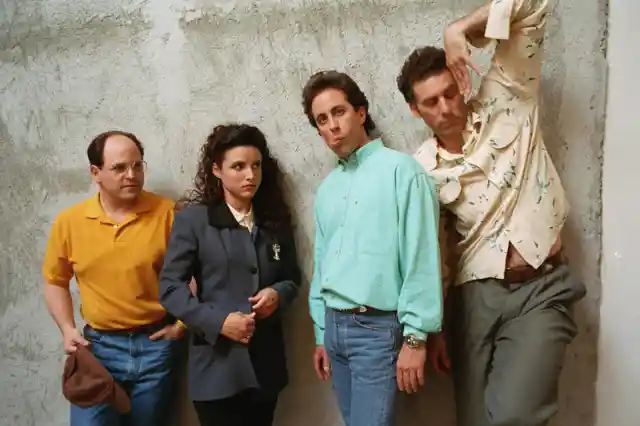
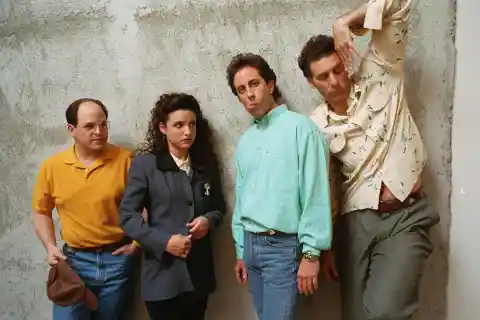
Moreover, Constanza also alleged that the show’s creators had borrowed many things from him to create George, including his lack of hair, his body-frame and the fact that a teacher once gave him the moniker “Can’t stand ya.” The judges didn’t buy it, though, and in 2001 Costanza’s case was thrown out of court.
The Show Wasn’t Necessarily About Nothing
Whenever the title Seinfeld comes up, the words “a show about nothing” usually aren’t too far behind. Someone asked Jerry Seinfeld about this on his reddit AMA, writing, “What obstacles did you face when pitching your idea of a show about ‘nothing’? Who supported you and who didn’t?” And Seinfeld had a surprising answer.
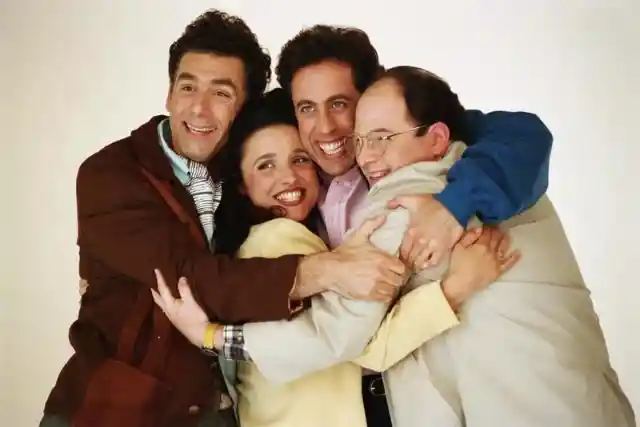

“The pitch for the show, the real pitch, when Larry and I went to NBC in 1988, was we want to show how a comedian gets his material,” Seinfeld recalled. “The show about nothing was just a joke in an episode many years later, and Larry and I to this day are surprised that it caught on as a way that people describe the show, because to us it’s the opposite of that.”